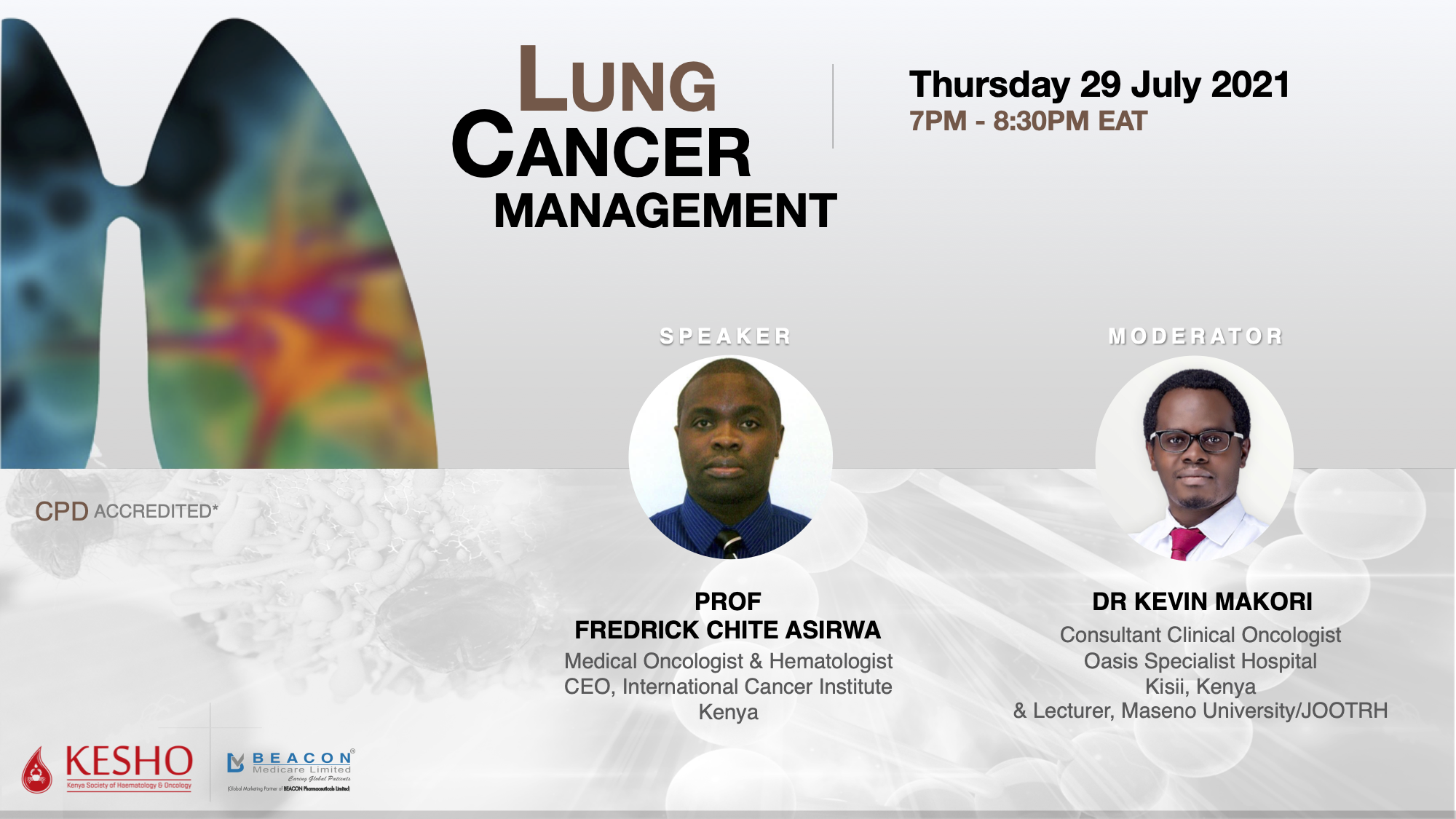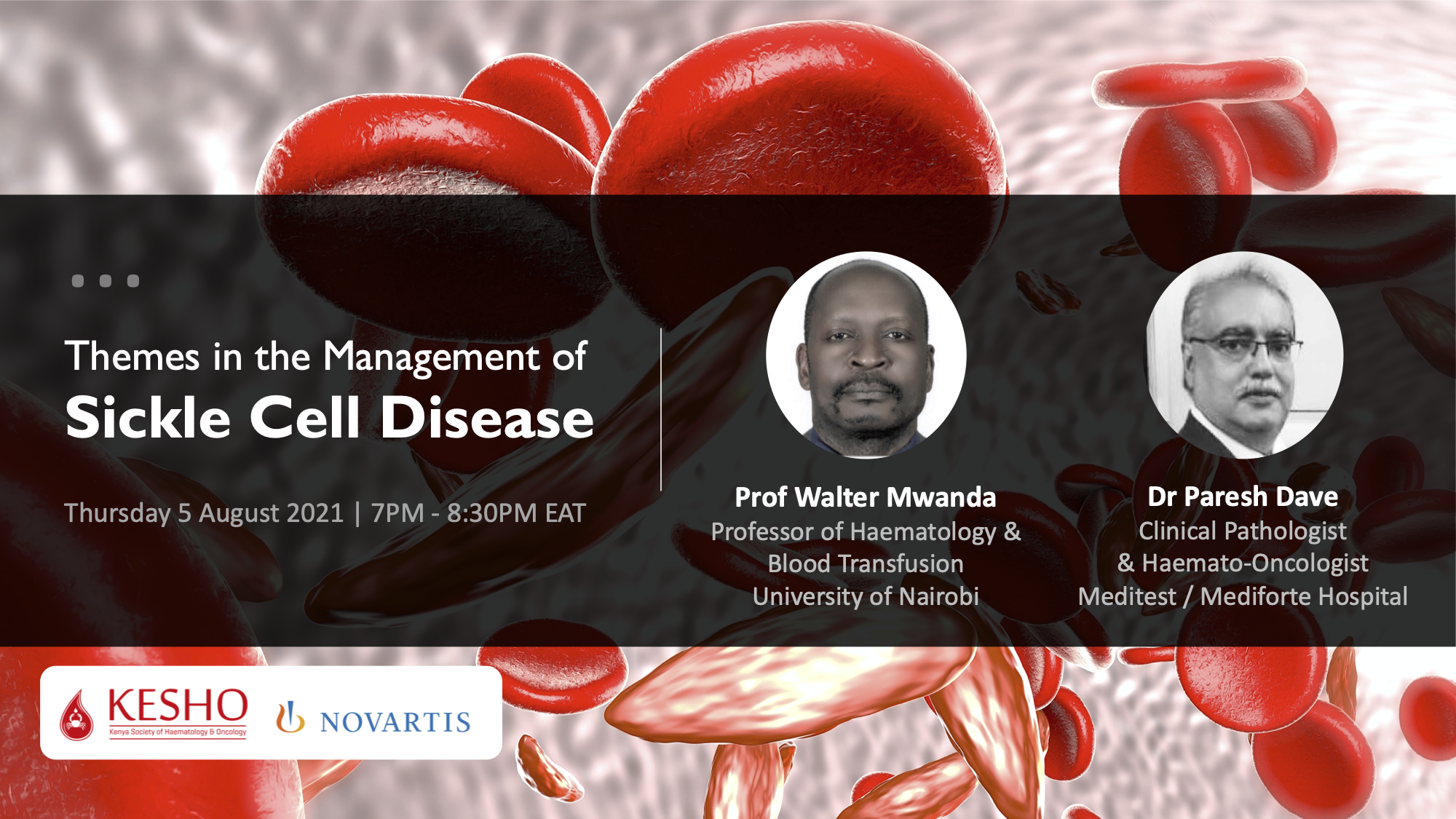
- This event has passed.
Lung Cancer Management
Event Navigation

Moderator: Dr. Kevin Makori, Consultant Clinical Oncologist Oasis Specialist Hospital Kisii, Kenya & Lecturer, Maseno University/ JOOTRH
Sponsor: Beacon
Presenters:
- Prof. Fredrick Chite Aswira, Consultant Physician, Chief Medical Oncologist & Hematologist, Executive Director of International Cancer Institute (ICI)
Lung cancer is a common cancer globally according to globocan, 2020). However, there is no cancer registry in Kenya, hence the statistics given are approximations. The risk factors include increasing age, history of or current tobacco use, exposure to cancer-causing substances in secondhand smoke, occupational exposure, radiation exposure, air pollution, family history, infection with human immunodeficiency virus, and beta carotene supplements in heavy smokers. There is a need for a high index of suspicion of lung cancer among the caregivers, being the first point of contact, as previous findings have revealed that most patients make several hospital visits before diagnosis. Consequently, most patients are diagnosed at an advanced disease stage and have poor overall survival. The majority of the patients are aged between 60-80 years. Education and training are needed to improve diagnostics in lung cancer in Kenya. Bio-banking of tissues will improve research, to generate knowledge mutations and signaling pathways that may be useful to define mechanisms of drug sensitivity and potential molecular targets. Efforts are geared towards characterizing, optimally treating, and measuring outcomes of lung cancer in Kenya. Limited awareness in the community and among health care providers is a major barrier to lung cancer management. An innovative lung cancer community outreach program targeting high-risk groups including tuberculosis patients was initiated in Kenya. A total of 412 clients were screened for lung cancer where 79 individuals were found to have lung cancer. Lung cancers are heterogenous diseases, hence consideration of the patient’s molecular patterns should be made when initiating treatment. For immunotherapy treatment, PD-L1 expression remains the most important biomarker to personalize immunotherapy, where patients with high PD-L1 expression should be treated with checkpoint inhibitor monotherapy. The addition of chemotherapy may be considered depending on symptom burden, clinical course, and performance status. Immunotherapy improves outcomes for patients with advanced non-small-cell lung cancer. Further research and clinical trials should be done to identify more precise biomarkers and the optimal duration of immunotherapy. The high cost of drugs and the challenges with the importation of essential drugs further limits the effective management of lung cancer. Currently, there are no patient assistance programs hence patients bear the cost of treatment.

